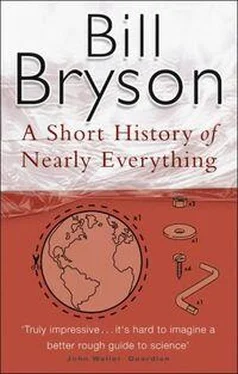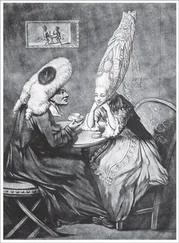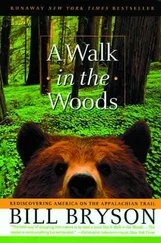Finally, the Bishop of Oxford, Samuel Wilberforce, rose to speak. Wilberforce had been briefed (or so it is generally assumed) by the ardent anti-Darwinian Richard Owen, who had been a guest in his home the night before. As nearly always with events that end in uproar, accounts vary widely on what exactly transpired. In the most popular version, Wilberforce, when properly in flow, turned to Huxley with a dry smile and demanded of him whether he claimed attachment to the apes by way of his grandmother or grandfather. The remark was doubtless intended as a quip, but it came across as an icy challenge. According to his own account, Huxley turned to his neighbor and whispered, “The Lord hath delivered him into my hands,” then rose with a certain relish.
Others, however, recalled a Huxley trembling with fury and indignation. At all events, Huxley declared that he would rather claim kinship to an ape than to someone who used his eminence to propound uninformed twaddle in what was supposed to be a serious scientific forum. Such a riposte was a scandalous impertinence, as well as an insult to Wilberforce’s office, and the proceedings instantly collapsed in tumult. A Lady Brewster fainted. Robert FitzRoy, Darwin’s companion on the Beagle twenty-five years before, wandered through the hall with a Bible held aloft, shouting, “The Book, the Book.” (He was at the conference to present a paper on storms in his capacity as head of the newly created Meteorological Department.) Interestingly, each side afterward claimed to have routed the other.
Darwin did eventually make his belief in our kinship with the apes explicit in The Descent of Man in 1871. The conclusion was a bold one since nothing in the fossil record supported such a notion. The only known early human remains of that time were the famous Neandertal bones from Germany and a few uncertain fragments of jawbones, and many respected authorities refused to believe even in their antiquity. The Descent of Man was altogether a more controversial book, but by the time of its appearance the world had grown less excitable and its arguments caused much less of a stir.
For the most part, however, Darwin passed his twilight years with other projects, most of which touched only tangentially on questions of natural selection. He spent amazingly long periods picking through bird droppings, scrutinizing the contents in an attempt to understand how seeds spread between continents, and spent years more studying the behavior of worms. One of his experiments was to play the piano to them, not to amuse them but to study the effects on them of sound and vibration. He was the first to realize how vitally important worms are to soil fertility. “It may be doubted whether there are many other animals which have played so important a part in the history of the world,” he wrote in his masterwork on the subject, The Formation of Vegetable Mould Through the Action of Worms (1881), which was actually more popular than On the Origin of Species had ever been. Among his other books were On the Various Contrivances by Which British and Foreign Orchids Are Fertilised by Insects (1862), Expressions of the Emotions in Man and Animals (1872), which sold almost 5,300 copies on its first day, The Effects of Cross and Self Fertilization in the Vegetable Kingdom (1876)-a subject that came improbably close to Mendel’s own work, without attaining anything like the same insights-and his last book, The Power of Movement in Plants . Finally, but not least, he devoted much effort to studying the consequences of inbreeding-a matter of private interest to him. Having married his own cousin, Darwin glumly suspected that certain physical and mental frailties among his children arose from a lack of diversity in his family tree.
Darwin was often honored in his lifetime, but never for On the Origin of Species or Descent of Man . When the Royal Society bestowed on him the prestigious Copley Medal it was for his geology, zoology, and botany, not evolutionary theories, and the Linnaean Society was similarly pleased to honor Darwin without embracing his radical notions. He was never knighted, though he was buried in Westminster Abbey-next to Newton. He died at Down in April 1882. Mendel died two years later.
Darwin’s theory didn’t really gain widespread acceptance until the 1930s and 1940s, with the advance of a refined theory called, with a certain hauteur, the Modern Synthesis, combining Darwin’s ideas with those of Mendel and others. For Mendel, appreciation was also posthumous, though it came somewhat sooner. In 1900, three scientists working separately in Europe rediscovered Mendel’s work more or less simultaneously. It was only because one of them, a Dutchman named Hugo de Vries, seemed set to claim Mendel’s insights as his own that a rival made it noisily clear that the credit really lay with the forgotten monk.
The world was almost ready, but not quite, to begin to understand how we got here-how we made each other. It is fairly amazing to reflect that at the beginning of the twentieth century, and for some years beyond, the best scientific minds in the world couldn’t actually tell you where babies came from.
And these, you may recall, were men who thought science was nearly at an end.
IF YOUR TWO parents hadn’t bonded just when they did-possibly to the second, possibly to the nanosecond-you wouldn’t be here. And if their parents hadn’t bonded in a precisely timely manner, you wouldn’t be here either. And if their parents hadn’t done likewise, and their parents before them, and so on, obviously and indefinitely, you wouldn’t be here.
Push backwards through time and these ancestral debts begin to add up. Go back just eight generations to about the time that Charles Darwin and Abraham Lincoln were born, and already there are over 250 people on whose timely couplings your existence depends. Continue further, to the time of Shakespeare and the Mayflower Pilgrims, and you have no fewer than 16,384 ancestors earnestly exchanging genetic material in a way that would, eventually and miraculously, result in you.
At twenty generations ago, the number of people procreating on your behalf has risen to 1,048,576. Five generations before that, and there are no fewer than 33,554,432 men and women on whose devoted couplings your existence depends. By thirty generations ago, your total number of forebears-remember, these aren’t cousins and aunts and other incidental relatives, but only parents and parents of parents in a line leading ineluctably to you-is over one billion (1,073,741,824, to be precise). If you go back sixty-four generations, to the time of the Romans, the number of people on whose cooperative efforts your eventual existence depends has risen to approximately 1,000,000,000,000,000,000, which is several thousand times the total number of people who have ever lived.
Clearly something has gone wrong with our math here. The answer, it may interest you to learn, is that your line is not pure. You couldn’t be here without a little incest-actually quite a lot of incest-albeit at a genetically discreet remove. With so many millions of ancestors in your background, there will have been many occasions when a relative from your mother’s side of the family procreated with some distant cousin from your father’s side of the ledger. In fact, if you are in a partnership now with someone from your own race and country, the chances are excellent that you are at some level related. Indeed, if you look around you on a bus or in a park or café or any crowded place, most of the people you see are very probably relatives. When someone boasts to you that he is descended from William the Conqueror or the Mayflower Pilgrims, you should answer at once: “Me, too!” In the most literal and fundamental sense we are all family.
Читать дальше












